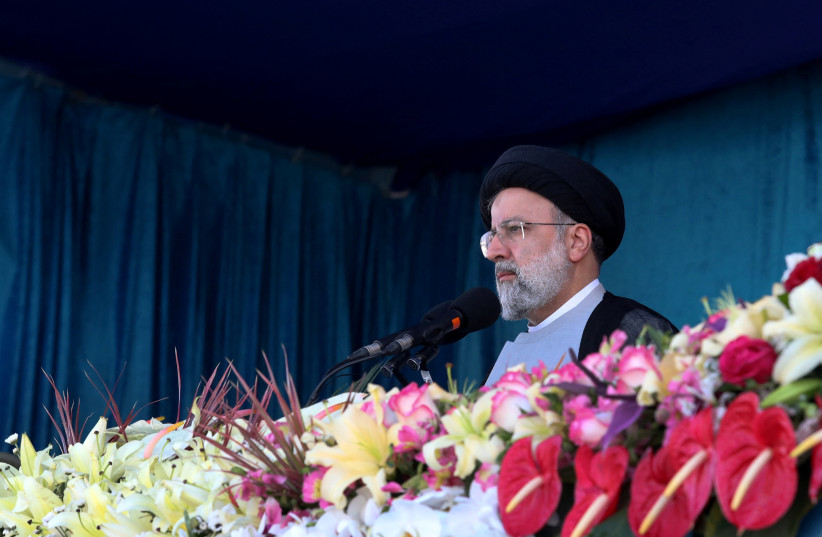Iran claimed it demonstrated surface-to-surface missiles and new drones at a parade this week. According to reports in Iranian and regional media, President Ebrahim Raisi also threatened Israel during the Monday parade. But reports from the parade were unclear about whether Iran’s usual claims to have rolled out some new missile or military threat are actually slowing down.
One issue a regime like Iran faces is that it cannot invent new weapons every day, but thrives on boasting that it can. Tehran knows that because it is poor, isolated and under sanctions, its real abilities are heralded either through unconventional threats, such as using proxies, or producing new capabilities to show off. This comes in the context of threatening Israel. However, Iran also knows that you can’t keep producing new technology without actually showcasing how the technology works.
For instance, the Islamic Republic has been rapidly increasing the use of its drones. There is no doubt the Iranian drone threat is increasing. However, there may be diminishing returns here. You can only build so many different drones. Why doesn’t Iran merely make several drones and hone them? The US, for instance, doesn’t build new drones every six months, but rather relies on several systems and improves them slowly.
Iran prefers to have several families of drones built by different companies and seeks to pretend that each has new capabilities every year. This means longer ranges and new missiles or destructive power.
Meanwhile, the regime also likes to showcase its ballistic and cruise missiles, precision guided munitions and maneuvering missiles. Iran has used missiles recently as well. It targeted Erbil in northern Iraq’s Kurdish region.

However, during the parade this week, Iran was not able to boast of new missile capabilities. Instead it showed off a missile that it says is based on a Russian system. This doesn’t appear to be a major improvement. Considering Russia’s problems in Ukraine, boasting that Iran’s missiles are rooted in the Russian system is not exactly a major development.
This means that as Iran holds yet another military parade, its leadership is passing off the same stale threats against Israel as if this is news. It appears the leadership knows that it is recycling this talking point of “warning” Israel at every opportunity. But what is Tehran actually doing? Is it moving more assets to Syria or Iraq? Is it hoping to use Hezbollah or the Houthis to ramp up threats?
Or, more likely, is the Islamic Republic hoping that clashes in Jerusalem could spill over into some kind of new conflict between Israel and Hamas?
Considering Iran’s relatively modest showing at the military parade and the fact it appears to be boasting about existing technologies, it is unclear what its next step will be in terms of improving its missile and drone threats. When Iran began to unveil the precision of its missiles several years ago, this raised eyebrows. Its drone program has also been evolving rapidly. The US, Israel and other countries have taken notice.
However, the regime in Tehran thrives on always keeping its adversaries guessing. This is because Iran can’t fight a conventional war against Israel or the US. It needs to rely on things like missile or drone threats, or using proxies.
In a conflict like this, Iran only wins if it can keep up in the arms race by creating new threats that might be able to get around existing defenses.
